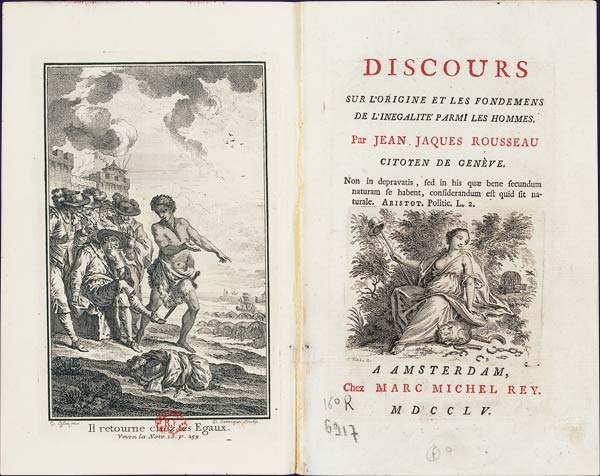Jean Jacques Rousseau The Second Discourse Pdf Printer

Jean-Jacques Rousseau was among the most important philosophers of the 18th century and remains influential to this day both for his political philosophy and philosophy of education. In his day, he was widely known as an essayist, composer and a representative of Enlightenment thought. His work, following his death, went on to influence the French Revolution. German Luger P08 Serial Numbers here.

His books Emile and The Social Contract were his most important philosophical works, the first setting out his philosophy of education and the second his political philosophy. He also wrote one of the first autobiographies in the modern period, along with a pre-Romantic novel, Julie. Rousseau's notoriety started from his earliest work, of which the first two Discourses are a part. Rousseau composed three Discourses, writing the first two in 1750 and 1754, respectively.
The Social Contract Jean-Jacques Rousseau Glossary agreement: The item that Rousseau calls a convention is an event, whereas.
The First Discourse is the Discourse on the Moral Effects of the Arts and Sciences, whereas the second is the Discourse on the Origin and Basis of Inequality among Men. The third Discourse is the Discourse on Political Economy.
The first two Discourses are contained within the book, while the third will not be analyzed here. The first Discourse, the Discourse on the Arts and Sciences, was a response to an essay contest which asked whether the development of the arts and sciences improved or corrupted human morality. The first Discourse won the contest and was Rousseau's first public success. In this Discourse Rousseau started his lifelong study of how civilization both corrupts and improves humanity.
Rousseau argues that the sciences and arts themselves throw virtue and enlightenment into conflict. Science contains great danger, since falsehood more often results from science than truth. Pursuing arts and sciences leaves the citizen idle and fails to teach him virtue. Enlightenment also often produces wealth and wealth always ruins morality. Wealth also destroys taste. When the arts spread, people are made to admire talent and reward people based on their public image. This produces inequality that is not tied to virtue.
The second Discourse, the Discourse on Inequality, Rousseau composed for another essay contest which asked contestants to tell a story about the birth of inequality and whether inequality is allowed by natural law. Rousseau failed to win the prize but the Discourse was published nonetheless. The Discourse distinguishes between physical/natural inequality on the one hand and moral/political inequality on the other. Natural inequalities result from differing endowments of strength and talent among men.
Savage men inhabit the original state of nature, but in this period men are not much affected by their natural inequalities. However, civilization develops from the benefits of cooperation and then inequalities inevitably have great impact.
Yodot Rar Repair With Serial Key. The first important inequality is the inequality of wealth. The rich stand to lose their wealth if the poor attack them so they invent political power to protect themselves. However, if political power gets out of control, turning against rich and poor, it then enslaves all of its subjects and produces despotism. This section contains 493 words (approx. 2 pages at 400 words per page).